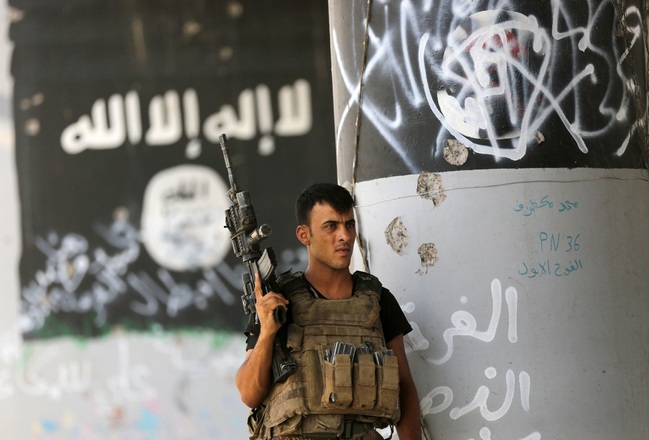The government of Iraqi Prime Minister Haider al-Abadi is rushing the operation forward even though it lacks a strategy to secure and govern the multiethnic city of roughly 1 million people once the terrorists are driven out. It is recruiting sectarian militia forces that have a record of abusing civilians and seizing territory for themselves. Plans for protecting refugees, who may number in the hundreds of thousands, are sketchy.
In short, the Mosul offensive is setting the stage for a potentially catastrophic Day After problem. Though the United States has painfully experienced what such poor preparation can lead to, in Baghdad in 2003 and Libya a decade later, it is pushing the Abadi government to move still faster.
Military experts are more concerned about the aftermath than the fight itself. Brig. Gen. William F. Mullen, who was deputy commander for U.S. operations in Iraq until June, predicted last week that Islamic State defenses in Mosul could collapse quickly. “And then what?” he asked at a forum at the Washington Institute for Near East Policy. The Iraqi government’s plan, he said, amounts to “chips will fall and we’ll sort it out when we get to that.”
It’s not hard to foresee where the ugliness will come from. Though the Mosul attack is expected to be led by U.S.-trained Iraqi counterterrorism units, Mr. Abadi has said Shiite militia forces also will participate. Iraqi Kurdish units may also move in from the north. Controlled by Iran rather than the Baghdad government, several of the Shiite militias were accused of atrocities during and after operations in the Sunni cities of Ramadi and Fallujah. There is ample reason to fear similar abuses against Sunnis in Mosul.
Once the Islamic State is vanquished, the various forces may turn on one another. Kurdish and Shiite fighters already have sparred in nearby Diyala province. Turkey has threatened to intervene on behalf of ethnic Turks in the city. Though a Sunni police force is being trained, it is a fraction of the size needed to prevent human rights abuses and factional fighting.
Plans for governance are equally threadbare. Iraqi leaders reportedly want to restore the former provincial governor and council, but that could be contested by another former governor with his own Sunni force. More important, the Baghdad government has taken no serious steps to resolve long-standing disputes with Sunni and Kurdish leaders over territory, revenue and the delegation of powers to local governments.
Though the absence of such political solutions facilitated the rise of the Islamic State, the Obama administration is not pushing for them. It is not using its considerable leverage — U.S. air support will be vital to liberating Mosul — to insist on better political preparations or the exclusion of Shiite militias. Instead, eager for the operation to begin before President Obama leaves office, it has been encouraging Mr. Abadi to speed up the Mosul offensive, while leaving the Day After problem to the Iraqis. That is a highly risky course.
Source www.washingtonpost.com/opinions/global-opinions/the-obama-administration-is-pushing-iraq-into-further-chaos.html


 RSS Feed
RSS Feed